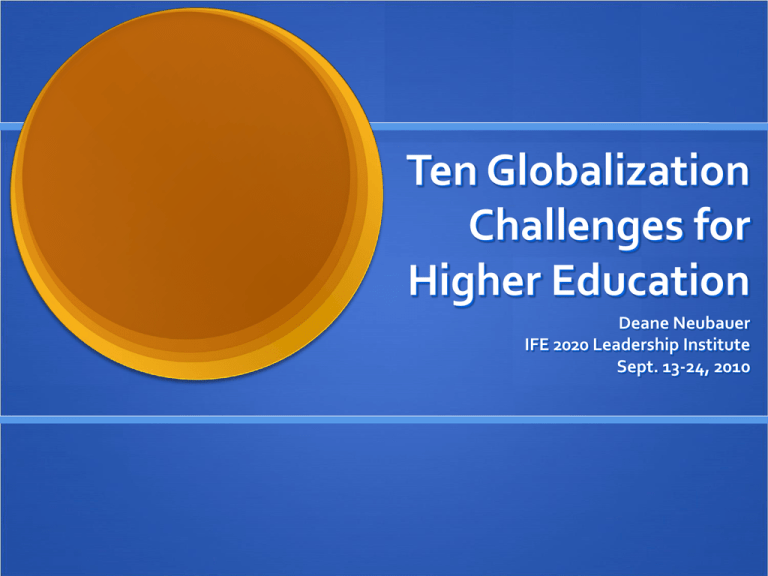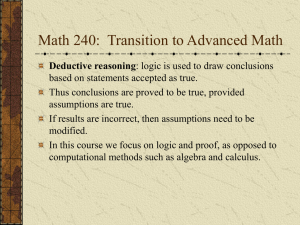Ten Globalization Challenges for Higher Education - East
advertisement

Ten Globalization Challenges for Higher Education Deane Neubauer IFE 2020 Leadership Institute Sept. 13-24, 2010 Demographics Proposition 1: Demographic dynamics in part created by and in part articulated through globalization affect the ability of countries to meet Higher Education access and capacity challenges. Workers--Alignment Proposition 2: Shifting patterns of production and consumption make the role of higher education in responding of employment alignment issues uncertain— what kinds of workers does a society need? Interdependence and Governmental Autonomy Proposition 3. Interdependence dynamics overwhelm national policy capabilities, in finance, migration, government revenues, and education. Generalized Systemic Effects Proposition 4. Perturbations of the global system produce unintended consequences such as climate change, pollution, etc—which in turn affect curricular responsibilities. Neoliberalism’s Legacy Proposition 5. Neoliberalism’s promotion of market solutions and autonomy has resulted in expansion of private HE markets often in situations of insufficient regulation, thus affecting quality. Knowledge Issues Proposition 6. Globalization’s stimulus for and embodiment of knowledge dynamics have created information singularity thereby eroding traditional sources of knowledge and standards, with consequences for teaching methodology and student responsibility. Income Inequality Proposition 7. Income inequalities affect resources for education. When combined with the ideology of neoliberalism and private sector realization, they exhaust commitments to education as a public good, and make education a commodity available only to those with means. Instability and Change Proposition 8. Instability and change within economic production systems produce instability within job systems, thereby aggravating the misalignment between higher education and job markets. Global Rankings Proposition 9. Notions of global competitiveness produce dynamics such as rankings, which are inherently reductionist. Culture, English, and Media Proposition 10. The communication and cultural construction mechanisms of media and mass consumption, so much a part of contemporary globalization coupled with other dynamics such as English primacy, erode higher education’s traditional role of cultural preservation.











